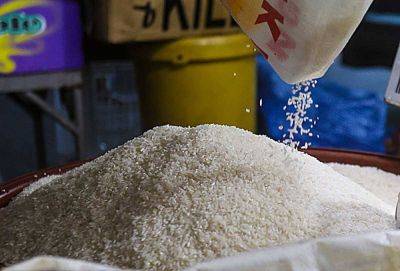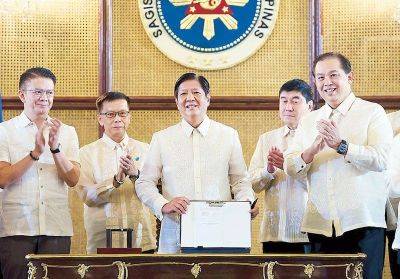Marcos signs Anti-Agricultural Economic Sabotage Act into law
MANILA, Philippines — President Ferdinand Marcos Jr. on Thursday, September 26, signed into law a measure imposing stiffer penalties for agricultural smuggling.
The Anti-Agricultural Economic Sabotage Act is one of this administration’s priority legislations. The Senate ratified the bicameral report on the measure in August, mending disagreeing provisions between the two chambers of Congress.
“Today, we come together, not merely to protect but to uplift the very hands that cultivate our fields and fish our waters as we embark on the pivotal journey of enacting the Anti-Agricultural Economic Sabotage Act,” Marcos said in his speech in Malacañan Palace.
The new law effectively repealed the Anti-Agricultural Smuggling Act of 2016, replacing it with a law that clearly defined crimes related to agricultural economic sabotage, which includes smuggling, hoarding, profiteering and cartel operations.
“A non-bailable offense punishable by life imprisonment, and fines up to five times the value of the goods involved,” Marcos said.
The law creates the Anti-Agricultural Economic Sabotage Enforcement Group, which would create a special team of prosecutors that will take these cases to court.
Marcos believed that these crimes not only negatively impact the economy, but it also affects national security, citing threats to livelihood and food price stability.
“To those who seek to sow chaos in the fertile fields and waters that sustain us, the hand of justice will swiftly and decisively find you,” Marcos said.
Marcos’ term has seen sky-high food prices, which have largely been attributed to smuggling and inflation.
“Every sack of smuggled rice, every under the table onion deal, every substandard meat sneaking past our quarantine checks. These are not just numbers, they represent lives, families, and futures that are being compromised,” Marcos said.
During the ceremonial signing, Marcos was joined by House Speaker Martin Romualdez, Senate President Francis Escudero, Sen. Cynthia Villar who is the principal author of the measure, Agriculture Secretary Francisco Tiu Laurel Jr. and more.







